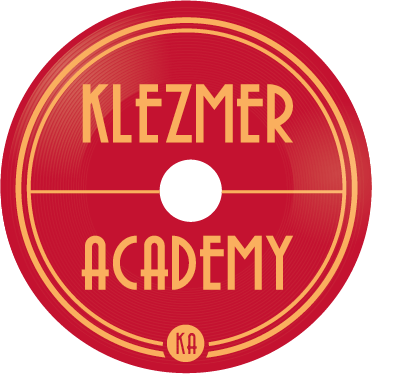Jacob Gegner, from 1914 Extraphone catalog
Tonight’s record is an Extraphone disc recorded by J. M. Gegner (later known as Gegna) in 1913. Gegner is best known to the contemporary klezmer world from his one American recording, made in NY in 1921 on the Columbia label. But before he moved to the US in 1914, he made a number of recordings on the Amour Gramophone and Extraphone labels. One of his Amour Gramophone discs was reissued on Chekhov’s Band—Eastern European Klezmer music from the EMI archives 1908-1913, but to my knowledge, this is the first of his Extraphone recordings to surface. What is truly interesting is that the two tunes contained on this oh so rare disc are versions of the two tunes we already know.
This tune, under the title “Fantasy on a Jewish Theme,” was recorded for Extraphone in Poltava in 1913. It was recorded under the title “Fantasy on a Jewish Melody” for Amour Gramophone (track 7 on the Chekhov’s Band CD) that same year. The performances are very similar, both with minimal piano accompaniment, sparse but effective ornamentation and the occasional virtuosic flourish. The Amour performance differs primarily in that Gegner moves to the lower register in the latter part of the tune.
Advertisement from 1918
The Columbia recording, made in 1921 and entitled Taxim, is virtually identical for the first part of the recording, but it truncates the fantasy and adds a lovely khosidl melody.
The other side of the Extraphone recording, entitled Evreskaja melodie (Jewish Melodies), turns out to be the same tune that Gegner titled A Tfileh fun Mendel Beilis in 1921. Mendel Beilis was a Jewish man accused of a ritual killing in Kiev in 1913. Gegner apparently attended his trial in 1914 and was moved to write this heartfelt lament by that experience. I find it interesting that he did not reference Beilis in the earlier recording, since it would have made sense to take advantage of Beilis’s notoriety, which was considerable.
Again, the performances are nearly identical.at least with respect to the violin. In fact, as befits a tune composed right after an influential experience, the Extraphone recording is more dramatic and emotional in the simplicity of the piano accompaniment. It opens with a low tremolo in the piano, and towards the end of each chorus of the tune ends with single notes doubling the fiddle melody. The accompaniment in the American version is much more stylized, though equally s imple, with the piano playing simple chords throughout, and during those final phrases, playing harmony notes rather than doubling the melody.
Tomorrow, for the final night of the holiday, we will continue the theme of Mendel Beilis through the lens of Belf’s Romanian Orchestra.
Khag sameakh.
**Chanukah art from screen shots of the Menorah iPad app by RustyBrick, Inc.





